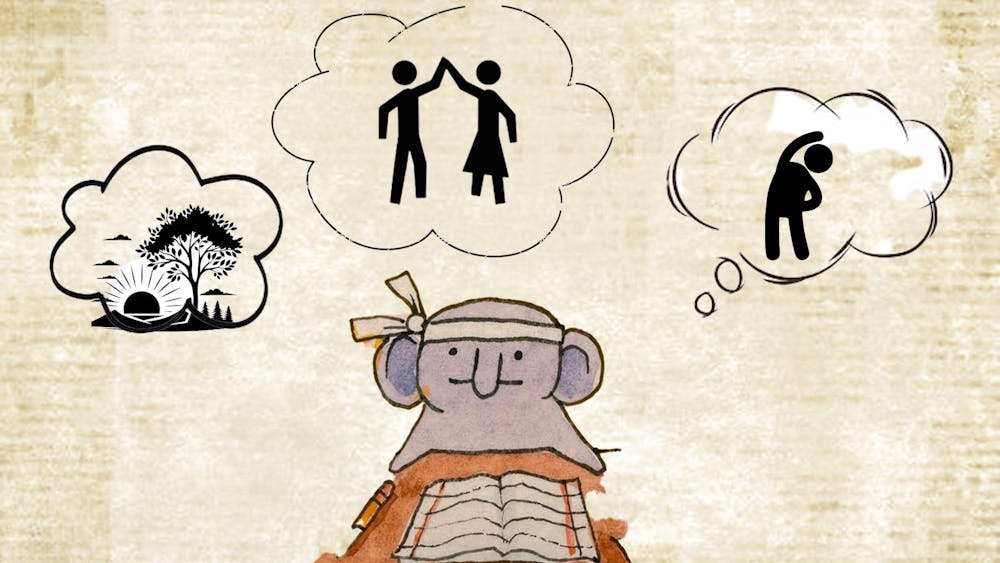I love Facebook. I love that all I need to do is type “f” into my search bar for Google Chrome to take me to my newsfeed. I check it several times a day, liking photos, reading status updates and keeping my profile as manicured as a hedgerow in Kensington Gardens. No spelling mistakes, no unwanted photos and no trolls. All is well. All is controlled. My own little world, subject to my preferences and standards.
It’s kind of creepy when you think of it like that. Facebook, for many of us, is how we keep our lives organized — or attempt to, at least. And it serves a valuable function: keeping us connected over distances, sharing our news, stories and jokes and helping us maintain active relationships with people we don’t see. It also tempts us to over-regulate ourselves. Even as our society comes to understand the enormous benefits of diversity and the obligation to respect those who are different from us, Facebook gives us the power to eliminate from our sight anything we choose, anyone we disagree with and any idea we don’t like. We exercise that power with a vengeance.
“If you’re planning to vote for Jeb Bush, please unfriend me.” “Comment on this status if you don’t stand with Planned Parenthood so I can unfriend you.” “Unfriend me if the Second Amendment means nothing to you.” I will delete any comment I don’t like. I will block any person I don’t agree with.
We’re promoting a concept of friendship that revolves around who we agree with the most, and we value it based only on how well we can rant together and not on what we can learn from each other. Unwilling to de-glorify our opinions, we would rather project from our soapboxes into a bunch of agreeing ears, or into empty space, than remain associated with an opposing view. Homogeneity is the prerequisite for respect; everyone else can buzz off. With 24-hour news updates available to us, and with anyone able to publish her opinion for the world to see, we think we need an opinion on everything, one we must defend above all else. Anyone who disagrees — click, click — unfriended. Our pride, inflated by how much we think we know, is now more important than actually pursuing the best answer — which involves dialogue with others.
We protect our fragile egos — safe in our little Facebook empires — by treating people as more disposable than principles. That’s a dangerous precedent, if history has taught us anything. This hypercontrol gives us a feeling of authority over other people’s opinions and, by extension, their worth: if we don’t like it, it’s not worthy of our attention or association. The flipside is dangerous, too. We think liking a photo or commenting on a status is “doing our part.” Hundreds of thousands of people liked Humans of New York’s recent picture of a refugee reunited with his son, me included. How many of those people have taken the time to donate to nonprofit organizations like UNICEF, UNHCR or Catholic Relief Services, which provide real aid to refugees? How many have researched the origins of the crisis in Syria, which many believe is linked to environmental stress and climate change? How many have advocated somewhere other than on their Facebook walls for greater government support for refugees? Spreading awareness on Facebook is one of the many wonderful benefits of social media, but substituting meaningful action with a simple click of the finger? Not beneficial, not realistic and simply not enough. We need only look back at the pitifully inadequate Kony 2012 campaign for confirmation.
So as we move into the next few months — as our newsfeeds fill with presidential debate updates, football scores, pictures of immigrants, news from the Vatican and more about Planned Parenthood — let’s stay humble, friends, and remember the Indispensable Opposition, which is still as relevant as ever. Let’s face the opinions we don’t want to see and remember that we need them, as much as we need our own opinions, to understand our world. There’s a world outside Facebook that deserves and demands your attention. So stay friends with your suitemate who supports Donald Trump (he’ll need your shoulder to cry on after the election). Keep liking Humans of New York’s pictures, but also email your representative about sending aid to refugees. Be a full person, instead of a tiny cyberspace despot.
It’s what real friends do.
Disposable friends, disposable causes
The views expressed in this column are those of the author and not necessarily those of The Observer.









